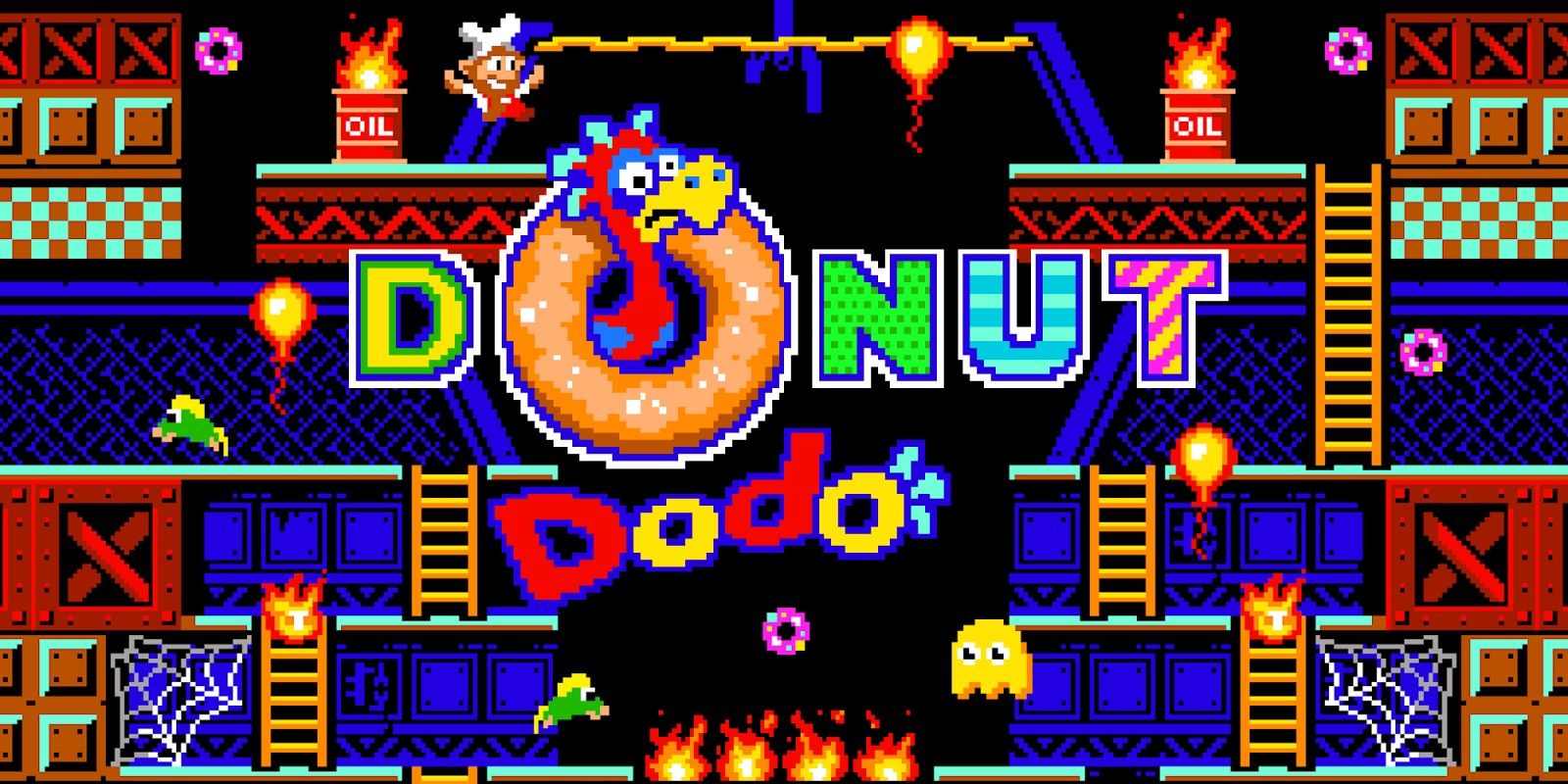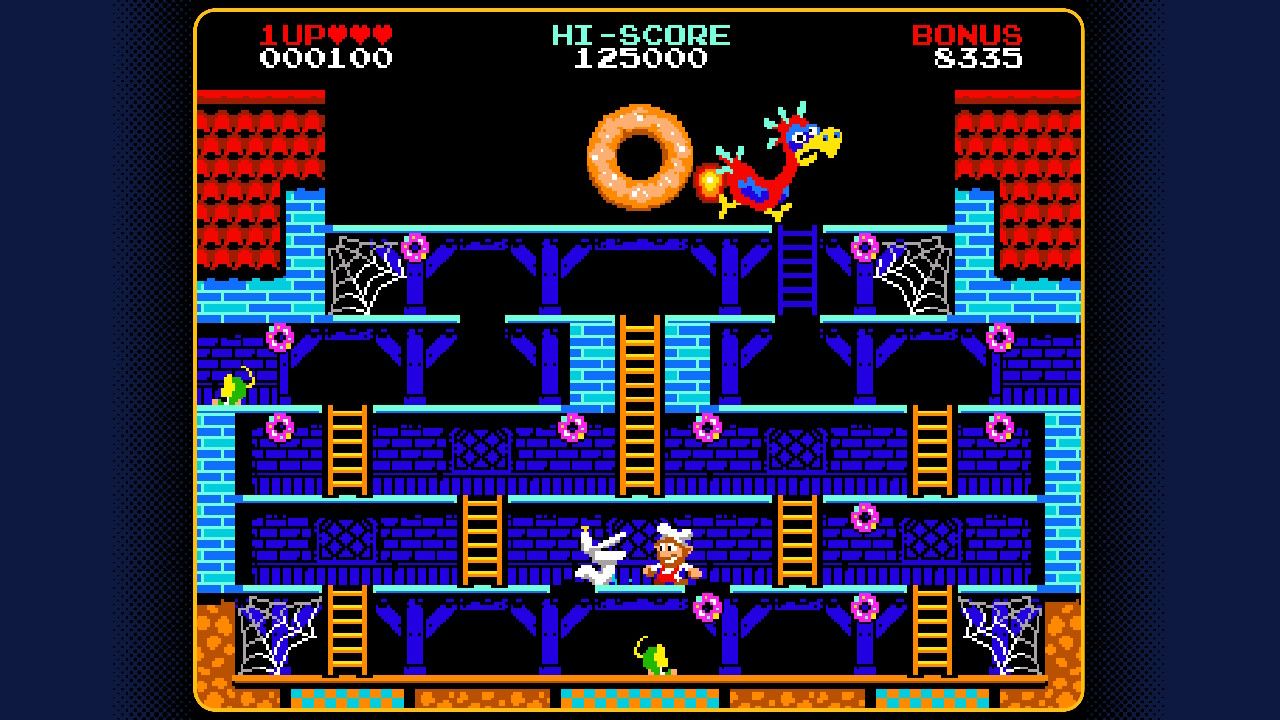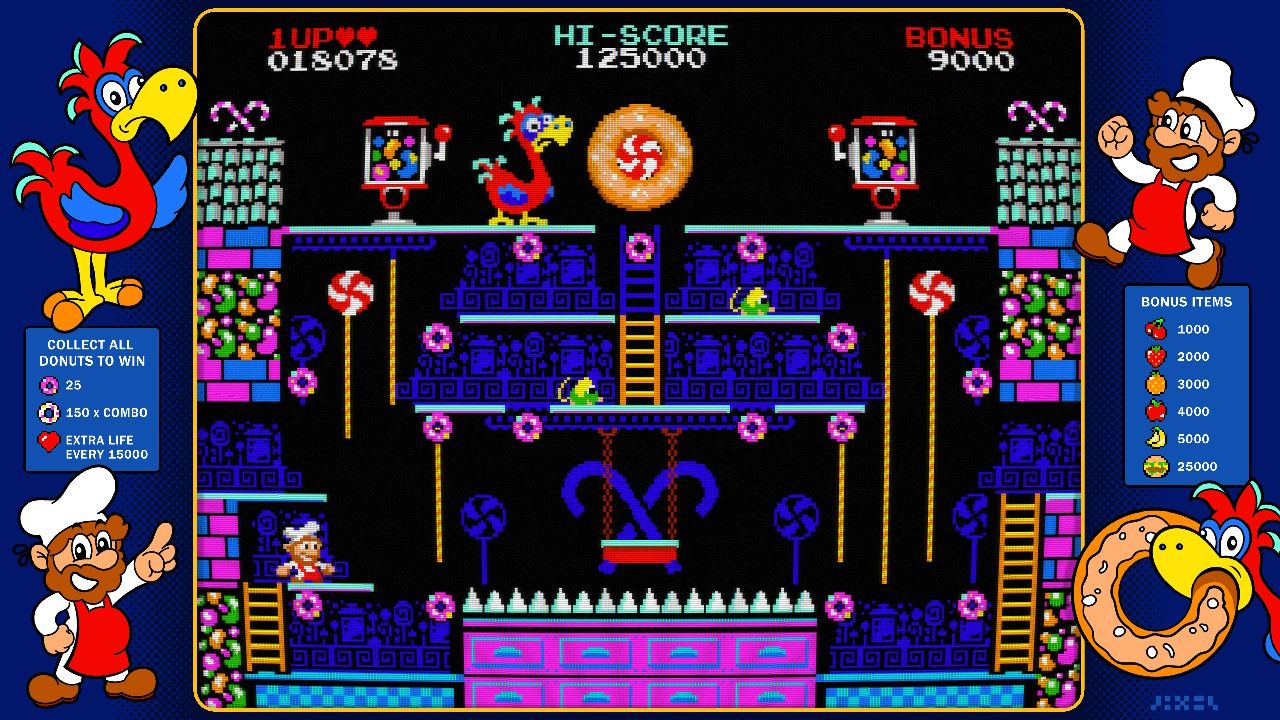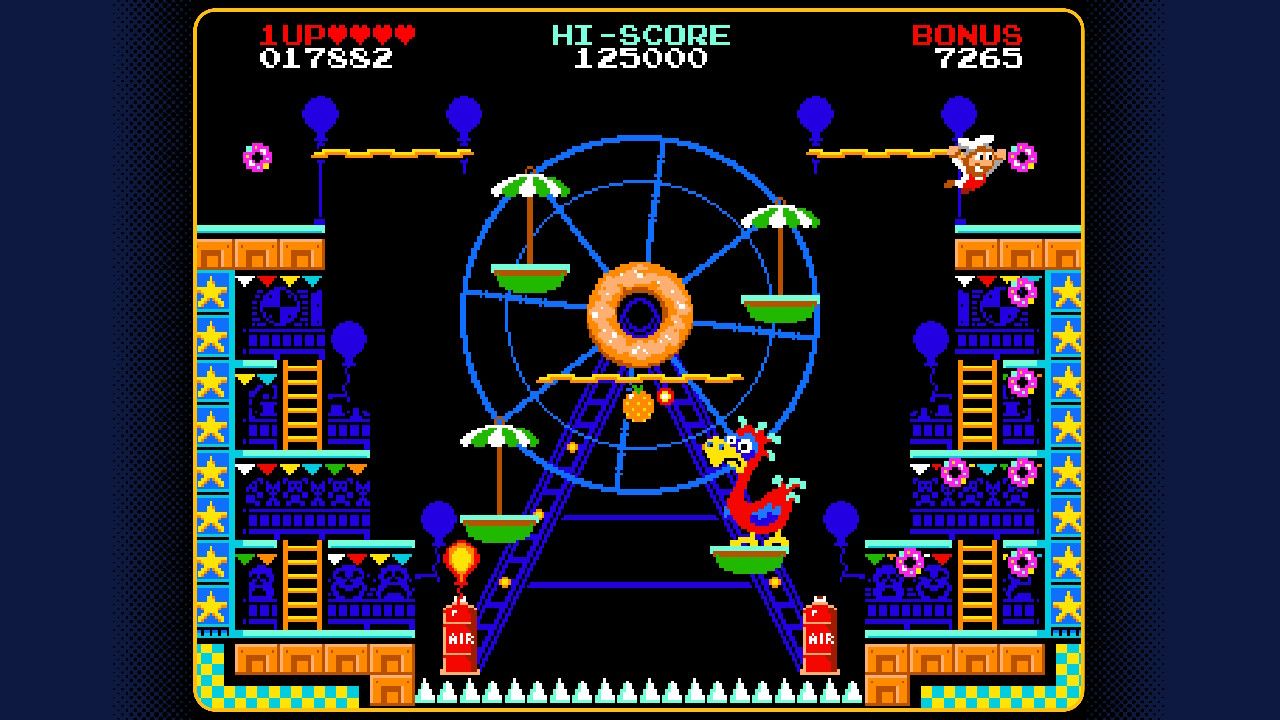Donut Dodo: Single-Screen Magic
Dodo or donut. There is no try.

The so-called ‘golden age of arcade games' is approaching mythical status. Times move at lightning speed in the world of video gaming, so comparisons with other media make this early 1980s heyday seem almost unapproachable, even for those of us who were just about alive at the time. Aside from Billy Mitchell and his disputed high-score claims, single-screen classics like Pac-Man and Donkey Kong remain niche pursuits.
I’ve long thought that there’s a missed opportunity here. As technology advanced rapidly over the past four decades, so too did the genres we tend to immerse ourselves in. The medium constantly reinvents itself, casting aside experiences unless they take full advantage of the latest graphical power or online capability. So, naturally, the mainstream is dominated by open-world 3D adventures and online multiplayer shooters.
While understandable, this focus neglects whole swathes of variety in the gaming experience. Why can’t we still enjoy those methods of gaming, pioneered throughout gaming history, but brought up to code with modern standards? Donut Dodo offers us a glimpse at the answer: there’s no reason we can’t.

Donut Dodo is an unashamed, undeniably derivative release from publisher Flynn’s Arcade. Its default high-score table announces the game’s inspiration right off the bat, with twinned three-letter entries like PAC/MAN, DIG/DUG, and POP/EYE. This is just the beginning, though. Playing Donut Dodo, you’ll be bombarded with a multitude of memories: anything from Donkey Kong to cult Spectrum classic Manic Miner. While some of these are simply knowing references, like the toilet-shaped enemies with more menace than you might expect, the game is keen to pay homage by recreating the very best elements of these single-screen titans.
So you’ll instantly be at home with the main gameplay challenge, collecting a set of strategically-placed donuts before proceeding to the target destination on each level. The mix of enemy behaviours, from dumb patrolling apes to more insidious, intelligent creatures, is at once familiar. A bonus timer ticks down, bonus items appear randomly, and free lives are awarded at regular intervals. The game absolutely feels like it has taken a little from Classic A and a little from Classic B, to great effect.
Each level has its own identity, typically with a unique twist. Level One has a timing twist at the end, level two makes great use of screen wrap, and the third level’s rotating Ferris Wheel is a wonderful construct that adds an extra dimension to your jumping technique. These screens are also packed with hazards that vary in their behaviour, and you’ll need to have good visual awareness to keep an eye on each element that threatens to end your run.

But what really makes Donut Dodo a triumphant success is its polish, the layer of tweaks and improvements that can be applied with forty years of hindsight. Take the game’s ladders, for example; a trivial matter that you’d overlook if you weren’t familiar with the atrocious implementations of the past. Unlike Donkey Kong, there’s no need to perfectly align the sprites, no ridiculous requirement to be standing still before you can climb. You can zip up and down these ladders with the finesse and ease of an acrobat. In a word, they are “smooth”, much like almost every other aspect of the game. Basic jumps, too, put the inspirations to shame, with the simple enhancement of being able to change direction in mid-air.
This may all seem like small beer, a case of polishing something without really improving its substance. You’ll likely take away this impression from footage of the game because these are details that can only really be appreciated by playing it. Thankfully, Donut Dodo adds more visible flourishes too. For one, its graphics are just the right balance of faithful and innovative, adding enough background detail and colour palette work to make the game palatable to a modern audience. The animation of the large dodo sprite, and the lurid flashing screen effect on level completion, are two fantastic examples.
The audio is an incredible achievement as well, possibly the game’s crowning glory. Yes, there are the traditional squeaks and bloops accompanying your actions—without these, it just wouldn’t be a classic arcade game. But the standards for a chiptune-style soundtrack have been raised here to magnificent effect. This music is catchy without being distracting. It creates a sense of urgency which helps rather than hinders. And the “Game Over” tune is a polyphonic, electronic masterpiece that will stay with you long after you stop playing.

Of course, all this would be for nothing were the gameplay less than satisfactory. But this is a highly playable and addictive game that’s easy to pick up and tricky to put down. Each of the five levels offers a unique challenge
While Donut Dodo manages to succeed, for the most part, my main complaint is that its gameplay can be a bit too repetitive. With only five levels, the main challenge involves finding an appropriate path to collect the donuts, and simply iterating on your ability to do so. But there’s a sense the developer has planned around this shortcoming and mitigated it as best they could. Those aiming to complete the game—by finishing two rounds of those five levels—should find this pattern-hunting will help them refine their technique and achieve that goal. Anyone planning to master the game, by racking up as large a high score as possible, will learn that the bonus offered by collecting donuts in a specific order, which changes with each playthrough, pays off considerably.

Donut Dodo is not quite ready to revolutionise gaming, nor will it stay with you as the most compelling experience in your gaming library. But it does go to demonstrate that this genre isn’t quite extinct, and with a little love and attention, even a contemporary audience can be served well by a blast from the past.